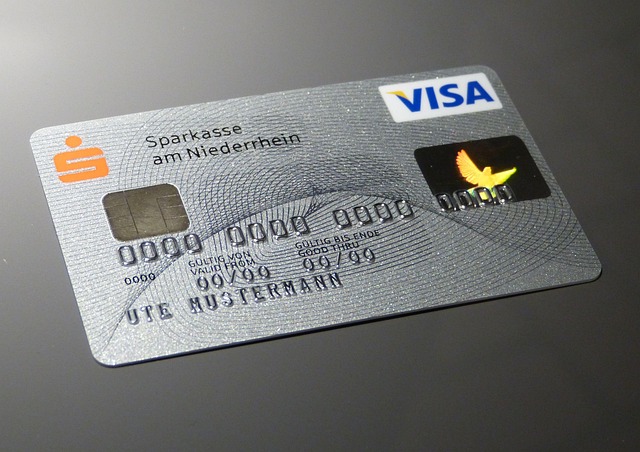Borrow Money in HK – General Overview of Business Loan Considerations
Securing a business loan in Hong Kong can be a crucial step for entrepreneurs looking to start, expand, or sustain their ventures. The vibrant business ecosystem in this global financial hub offers various financing options, but navigating the loan application process requires careful preparation and understanding. This article provides a comprehensive overview of business loan considerations in Hong Kong, addressing common requirements, preparation strategies, and factors influencing approval.

What are the common requirements for business loans in Hong Kong?
When applying for a business loan in Hong Kong, lenders typically have several standard requirements. These often include:
-
Business Registration: A valid business registration certificate is essential, proving your company’s legal status in Hong Kong.
-
Financial Statements: Lenders usually request at least two years of audited financial statements to assess your business’s financial health and performance.
-
Business Plan: A detailed business plan outlining your company’s objectives, market analysis, and financial projections is often required, especially for startups or new ventures.
-
Collateral: Depending on the loan type and amount, lenders may require collateral such as property, equipment, or other valuable assets.
-
Personal Guarantee: For small businesses or startups, directors or major shareholders may need to provide personal guarantees.
-
Credit History: Both the company’s and the directors’ credit histories are typically evaluated.
How can entrepreneurs prepare before starting the loan application process?
Preparation is key to improving your chances of loan approval. Here are some steps entrepreneurs can take:
-
Organize Financial Documents: Gather and review all necessary financial statements, tax returns, and cash flow projections.
-
Improve Credit Score: Take steps to enhance both personal and business credit scores before applying.
-
Develop a Solid Business Plan: Create or update your business plan to clearly articulate your company’s goals and financial needs.
-
Research Loan Options: Explore various loan types and lenders to find the best fit for your business needs.
-
Prepare a Loan Proposal: Craft a compelling loan proposal that outlines how the funds will be used and how they will benefit your business.
-
Assess Collateral Options: Evaluate what assets you can offer as collateral if required by the lender.
What general factors influence approval for small business financing?
Several factors play a role in the loan approval process:
-
Business Performance: Strong financial performance and growth potential are positive indicators for lenders.
-
Credit History: A good credit history demonstrates reliability and responsible financial management.
-
Industry Outlook: The current and projected state of your industry can impact loan decisions.
-
Debt-to-Income Ratio: A lower ratio suggests better ability to manage additional debt.
-
Business Age: Established businesses may have an advantage over startups in securing loans.
-
Loan Purpose: Clear and viable purposes for the loan funds are viewed favorably.
What types of business loans are available in Hong Kong?
Hong Kong offers a variety of business loan options to cater to different needs:
-
Term Loans: Fixed-amount loans repaid over a set period, suitable for long-term investments.
-
Overdraft Facilities: Flexible short-term financing for managing cash flow fluctuations.
-
Trade Financing: Specific loans for import/export businesses to facilitate international trade.
-
Equipment Financing: Loans for purchasing machinery or equipment, often using the asset as collateral.
-
Government-backed Schemes: Programs like the SME Financing Guarantee Scheme offer additional support for eligible businesses.
What unique considerations should Hong Kong entrepreneurs keep in mind?
When seeking business loans in Hong Kong, consider these local factors:
-
Language Requirements: Prepare documentation in both English and Chinese to cater to different lenders.
-
Economic Integration: Highlight any business connections with mainland China or the Greater Bay Area, as these can be viewed positively.
-
Regulatory Compliance: Ensure strict adherence to Hong Kong’s financial regulations and reporting standards.
-
Sector-Specific Opportunities: Research sector-specific loan schemes, as Hong Kong often provides targeted support for industries like technology and finance.
-
Cultural Nuances: Understand the importance of personal relationships and networking in the Hong Kong business culture, which can sometimes influence loan processes.
How do Hong Kong banks compare in terms of business loan offerings?
| Bank | Loan Types | Key Features | Typical Interest Rates |
|---|---|---|---|
| HSBC | Term Loans, Overdrafts, Trade Financing | Online application, Fast approval for existing customers | 2.75% - 5% p.a. |
| Bank of China (HK) | SME Loans, Equipment Financing | Specialized SME centers, Flexible repayment options | 3% - 6% p.a. |
| Standard Chartered | Business Installment Loan, Working Capital Financing | Unsecured options available, Preferential rates for loyal customers | 3.5% - 7% p.a. |
| Hang Seng Bank | Commercial Real Estate Financing, StartUp Loan | Property-backed loans, Special schemes for new businesses | 2.5% - 5.5% p.a. |
Prices, rates, or cost estimates mentioned in this article are based on the latest available information but may change over time. Independent research is advised before making financial decisions.
In conclusion, securing a business loan in Hong Kong requires careful preparation, understanding of lender requirements, and consideration of various factors that influence approval. By thoroughly researching options, preparing comprehensive documentation, and presenting a strong case for your business’s potential, entrepreneurs can improve their chances of obtaining the financing needed to support their business goals in this dynamic market.




